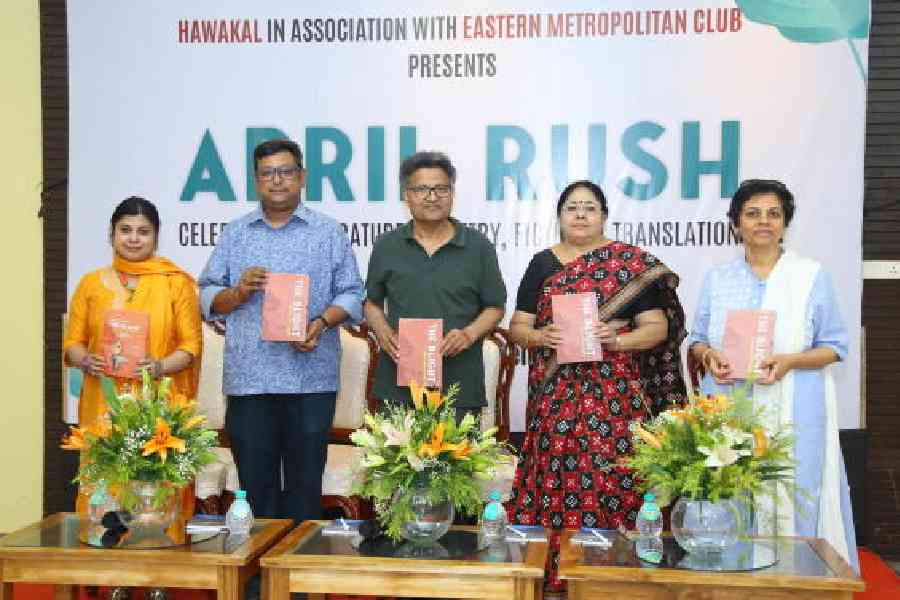Hawakal Publishers and the Eastern Metropolitan Club came together on April 13 to present an enlightening daylong programme called ‘April Rush: Celebrating Literature – Poetry, Fiction and Translation’ that was marked by book launches, read-aloud sessions and thorough panel discussions concerning the aesthetics of literature. Present were notable faces from the Calcutta literary circle, as well as Bitan Chakraborty himself, writer and founder of Hawakal Publishers.
t2 was present at the launch of Malati Mukherjee’s new book The Blight and Seven Short Stories, an English translation of Chakraborty’s popular Bengali works Dhosha and Landmark. The book launch was followed by a panel discussion on Chakraborty’s works, featuring eminent writers and academicians including Chakraborty, Professor Akshaya Kumar from the Department of English, Punjab University, Professor Ajanta Paul, principal and professor at the Department of English, Women’s Christian College, and translator Malati Mukherjee. Moderated by poet-writer Jagari Mukherjee, the panel discussed at length the reasons behind Chakraborty’s writing transcending fiction to represent reality, what makes his characters true survivors, and how his stories are inspired by everyday life.

Speaking at the launch, Chakraborty said, “It gives me great pleasure to be here today. I originally wrote these stories in light of modern-day socio-political events, because I believe no one writes about these things any more. I write such stories because I spend my days with people who discuss these issues with me. People who struggle on a daily basis, who drive autos and rickshaws and buses – and I have observed that these people inevitably have a vast stock of stories. These stories have always been very interesting to me, and it is these that I choose to write about. People read crime thrillers and horror stories nowadays, and the kind of stories I write about are too deeply rooted in reality to appeal to the masses anymore. But I believe it’s important to tell and retell these stories, because 50 years later, these tales will be the only way people will be able to understand the socio-political scenario of the current age.”
Malati Mukherjee felt Bitan’s characters “are real”. “They are not defeatists. They are people we meet on the streets every day, but we pass them by. We don’t notice them. It is only when we read Bitan’s stories that we begin to think and realise that we are surrounded by these people, and that their stories unfold alongside ours. And that is the greatness of Bitan’s stories. They force you to look at the ordinary man, to feel his pain which you would never otherwise feel. That is truly the essence of his work,” she said.
